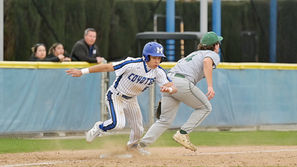Opinion: How will we know who won?
- Feb 12, 2020
- 3 min read
First, don’t be in too much of a hurry.
California isn’t Iowa, but The Golden State still may not know who won on March 3.
California voters can breathe a sigh of relief — the Democratic debacle in Iowa will probably NOT be repeated here come Super Tuesday, says Stephen Frank, publisher of California Political Review and Marisa Lagos of KQED Public Radio in San Francisco.
But that doesn’t mean Californians will know who won the most delegates in the Golden State on March 3 — that answer could take weeks after Election Day to sort out.
How can both be true?
Everyone has to walk into election day understanding that there will be a significant portion of the vote that is not available, not accessible, that cannot be counted on election night.
Rusty Hicks, California Democratic Party chairman, puts it simply: “We’re a big state that lets people register and vote both early and late. And since it’s a primary, the outcome will be determined by the number of delegates each candidate secures, which is essentially the result of a complicated math equation that can’t be completed until all the votes are counted.
“There’s a couple of important distinctions between Iowa and California,” said California Secretary of State Alex Padilla. “Aside from the size of our state and our population, the first thing to remember is Iowa had a caucus yesterday. California is having a primary election. So the way elections work and the way caucuses work are very, very different. Unlike caucuses, which are led by political parties and volunteers, elections in California are administered by elections professionals.”
And unlike caucuses — where eligible voters gather in one specific place for a few hours to show their support for a candidate — there are many different ways, and places, that California’s 20.3 million registered voters can vote over the next four weeks.
All of them involve a paper ballot, Padilla said, which allow elections officials to go back and audit the results.
“Fifteen million ballots have already been sent out” through the mail, Padilla said, noting that voters in all 58 counties can vote early by mail, or in person, at their county elections office. In 15 of those counties, he added, there are also early voting centers in additional locations; and people can register to vote up to and through Election Day at any polling location.
That means once the polls close at the end of the day on March 3, all those votes have to be verified as legitimate and then be counted — which can take awhile in any race. (Counties have up to four weeks to audit and officially certify election results.)
And that’s where things get complicated. March 3 isn’t just any election — it’s a presidential primary. That adds another wrinkle: delegate math.
Here’s how it works in California: Most of the state’s 495 delegates are apportioned by congressional district. In order to get any delegates, a candidate must win at least 15 percent of the votes cast in that congressional district. But we won’t know for sure who reached that 15 percent threshold until all the votes in each district are fully counted and verified.
“We won’t know the exact delegate allocation for probably three, four weeks after the election,” said Paul Mitchell, a consultant who advises campaigns on voter data and trends.
But, he added, “we will know more broadly who did well in the Golden State based on the initial tallies — and that could create momentum for a candidate in other states with primaries later in March.
So California won’t be Iowa — even if the counting takes even longer than the Hawkeye State.”





















Comments